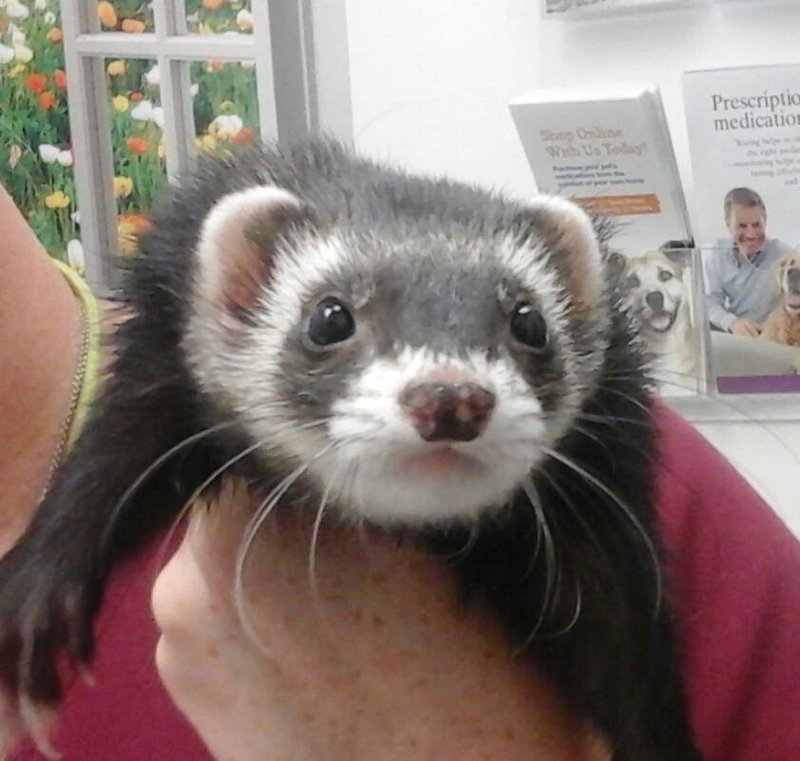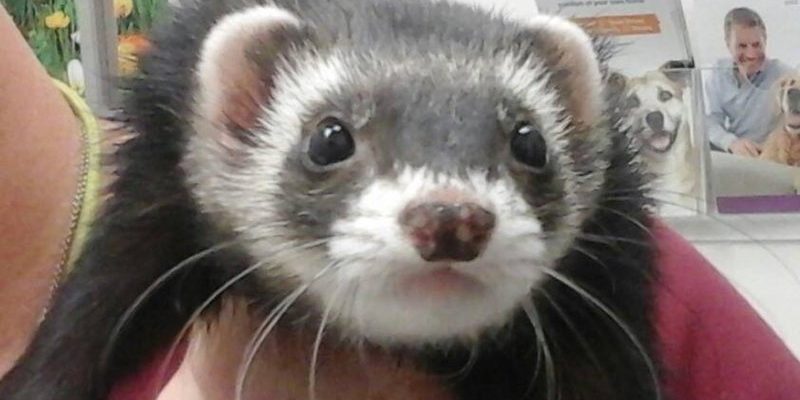
Imagine your ferret as a tiny, furry tornado, zooming through your house. They’re playful and sometimes a tad mischievous. To make sure you have the happiest, healthiest pet, let’s break down the essentials of ferret care. We’ll cover feeding, housing, and bonding so you’ll be well-prepared to give your ferret a wonderful life.
Feeding Your Ferret: What You Need to Know
When it comes to feeding your ferret, nutrition is key. Ferrets are obligate carnivores, which means their diet must be rich in protein and fat. Think of them as little eating machines! High-quality ferret food—specifically formulated for their dietary needs—should make up the bulk of their meals. Look for foods that list meat as the first ingredient. You might also want to consider supplementing their diet with fresh meats like chicken or turkey.
Here’s a quick checklist of what to look for in ferret food:
- High protein content: Aim for at least 30-35% protein.
- Healthy fats: Ideally, you want around 15-20% fat.
- No fillers: Avoid foods with corn, soy, or other fillers.
You may be wondering about feeding schedules. Ferrets have fast metabolisms, so they typically do better with multiple small meals throughout the day rather than one or two large ones. Keep fresh water available at all times, too—hydration is just as important as food!
Creating a Cozy Home: Housing Needs for Ferrets
Your ferret’s living space is crucial for their happiness and health. They love to explore and play, so a spacious cage that offers plenty of room to move around is ideal. A good rule of thumb is to choose a cage that’s at least three feet wide, two feet deep, and four feet tall.
Inside the cage, provide platforms for climbing, hammocks for lounging, and tunnels for burrowing. Ferrets are notorious for getting into things, so make sure the cage has safe, sturdy bars (no wider than an inch apart) to keep them from escaping. Adding soft bedding like fleece or blankets can make it feel like a cozy den, which they love!
Let’s not forget about playtime outside the cage. Supervised playtime in a ferret-proofed area of your home is essential. This means removing any hazards, like cords or small objects they could swallow. Set up fun toys that encourage their natural instincts to dig, climb, and hide.
Bonding with Your Ferret: Building a Strong Relationship
Bonding with your ferret is one of the most rewarding parts of having one as a pet. It’s important to remember that patience is key. Ferrets can be skittish at first, especially if they’re in a new environment. Start by letting them explore their space while you sit quietly nearby. This helps them get used to you.
Once they seem comfortable, try gently offering a treat from your hand. You might use something like a small piece of cooked chicken or a ferret-friendly snack. This positive reinforcement builds trust and encourages them to come closer. After a few days, you can start engaging in short, gentle play sessions.
You know how a good cuddle can feel after a long day? Ferrets enjoy snuggling, too! Once they trust you, don’t be surprised if they curl up next to you or even fall asleep in your lap. This is their way of showing affection!
Grooming and Health Care for Your Ferret
Grooming your ferret might seem daunting, but it’s easier than you think! Regular brushing helps keep their fur shiny and healthy. Use a soft brush designed for small animals, and try to groom them at least once a week. Also, don’t forget about nail trimming—keep those claws in check to avoid any accidental scratches.
Health care is a crucial part of ferret ownership, too. Regular vet check-ups are necessary to keep up with vaccinations and overall health. Ferrets are prone to a few health issues, like adrenal disease, insulinoma, and lymphoma, so early detection is vital. If you notice any changes in their behavior, diet, or energy levels, don’t hesitate to reach out to your vet.
Remember, a healthy ferret is a happy ferret!
Ferret Playtime: Engaging Activities to Keep Them Happy
Play is essential for ferrets, not just for fun but also for their mental and physical well-being. Interactive toys are a great way to keep them engaged. Consider toys that they can push around, climb on, or even hide inside. You might also try DIY toys—like cardboard boxes or paper bags—since ferrets love to tunnel and explore.
Scheduled playtime is just as important. Aim for at least 2-4 hours each day outside their cage. They have heaps of energy, and letting them burn it off through supervised play will help prevent boredom and related behaviors like chewing or digging.
Another fun idea is to create a ferret obstacle course using furniture, tunnels, and toys. This way, they can exercise while also stimulating their natural curiosity.
Understanding Ferret Behavior: What’s Normal and What’s Not
Understanding your ferret’s behavior can help you become a better pet owner. Ferrets are social animals; they thrive on interaction. If you notice your ferret becoming withdrawn or lethargic, it might be a sign that they’re not getting enough stimulation or companionship.
You might see your ferret do the “ferret dance” when they’re excited! It’s this adorable hopping and twisting that shows their playful side. But remember, if you see your ferret acting oddly—like excessive scratching or aggression—it’s worth checking in with a veterinarian.
Also, you’ll find that ferrets communicate through various sounds, from soft chirps to loud screeches. Each noise can tell you something about how they’re feeling, so pay attention to their vocalizations!
Owning a ferret can be an incredibly rewarding experience. By understanding their feeding needs, providing a safe and stimulating environment, and bonding with them, you’ll create a loving relationship that lasts a lifetime. Just like any pet, they require attention, patience, and love.
So, as you prepare to welcome this playful little companion into your life, remember that your ferret depends on you for their health and happiness. Enjoy every moment spent with your furry friend—they have a way of making even the simplest days feel special! With this complete care guide, you’ll be well-equipped to embark on your adventure in ferret ownership.

